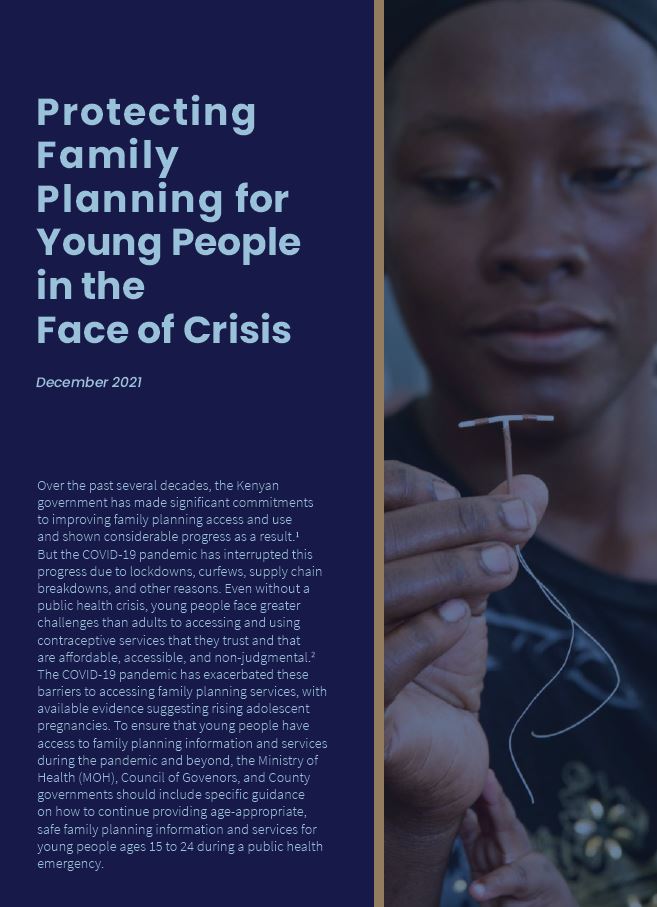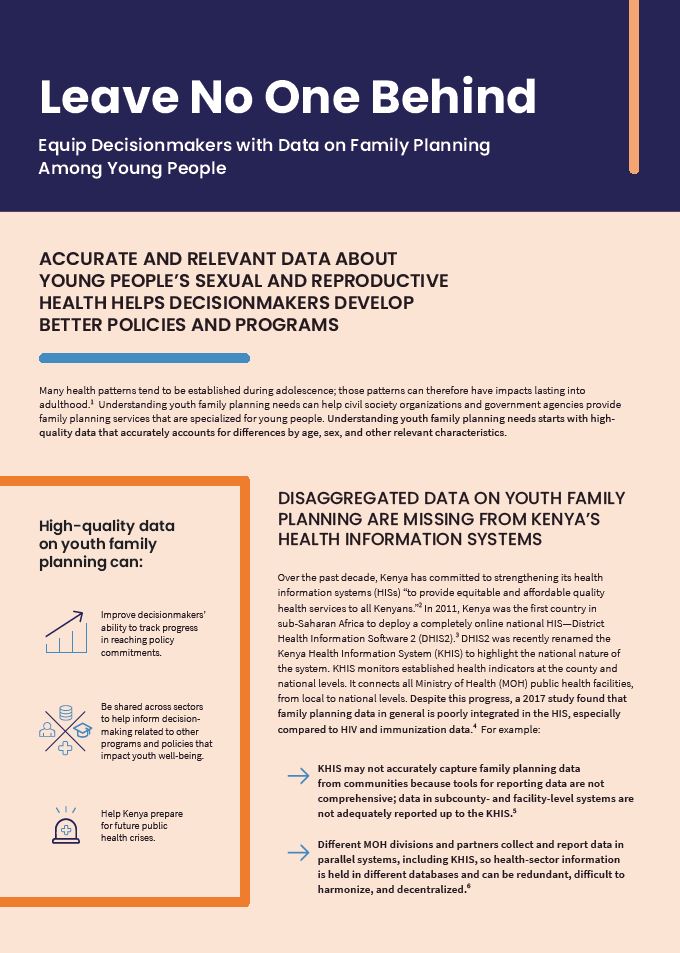1 Performance Monitoring for Action (PMA) Agile and International Centre For Reproductive Health-Kenya (ICRHK), Gender & COVID-19: Access to Health and Contraception (Baltimore, MD: Bill & Melinda Gates Institute for Population and Reproductive Health, Johns Hopkins University Bloomberg School of Public Health, 2020).
2 Organization of African Youth (OAY) Kenya, Assessment of RMNCAH+N and Meaningful Adolescent and Youth Engagement Global, National and County Policies and Their Effect on Access to AY Services and Information in Nairobi and Kisumu Counties (draft report), 2021.



